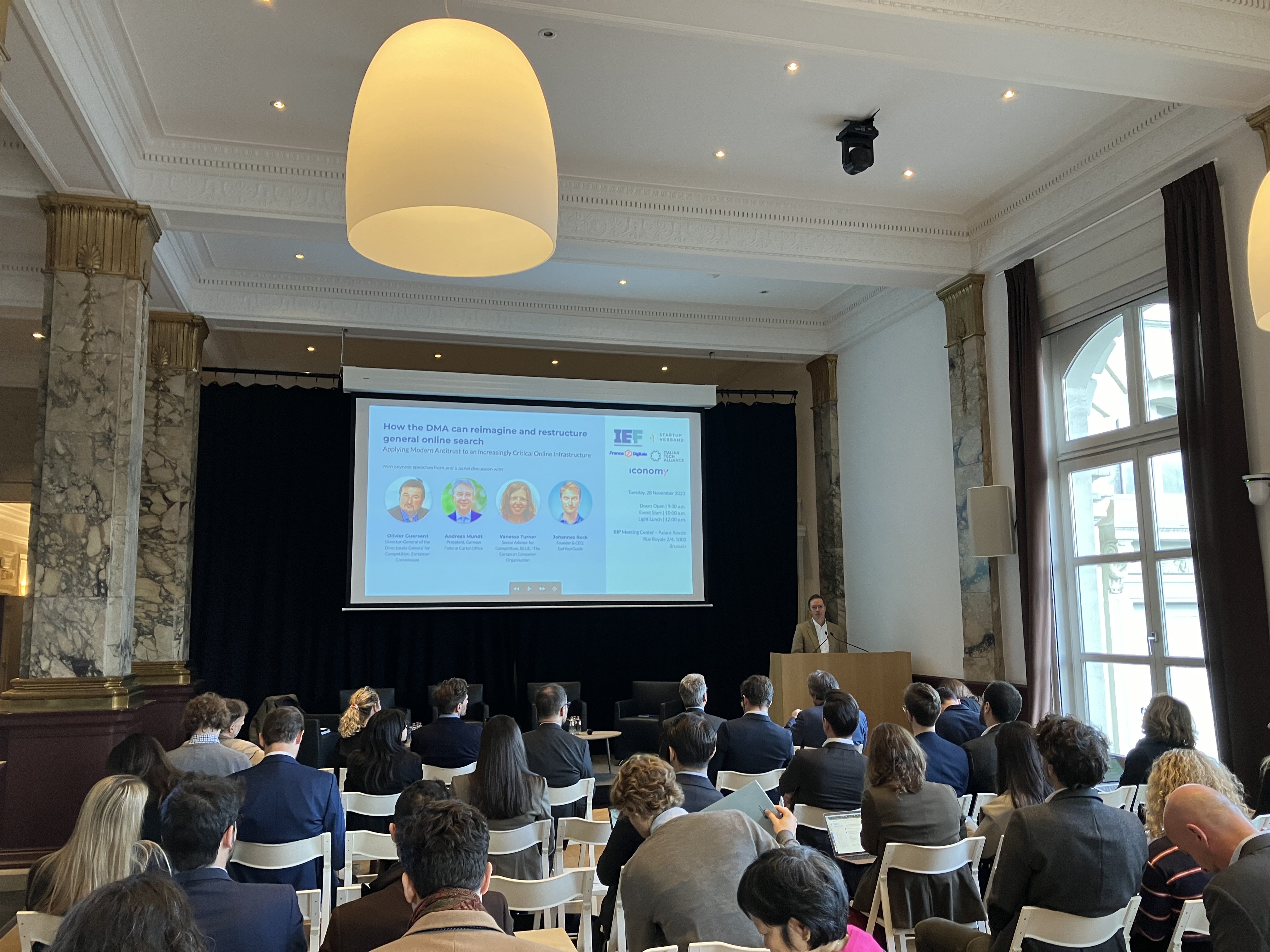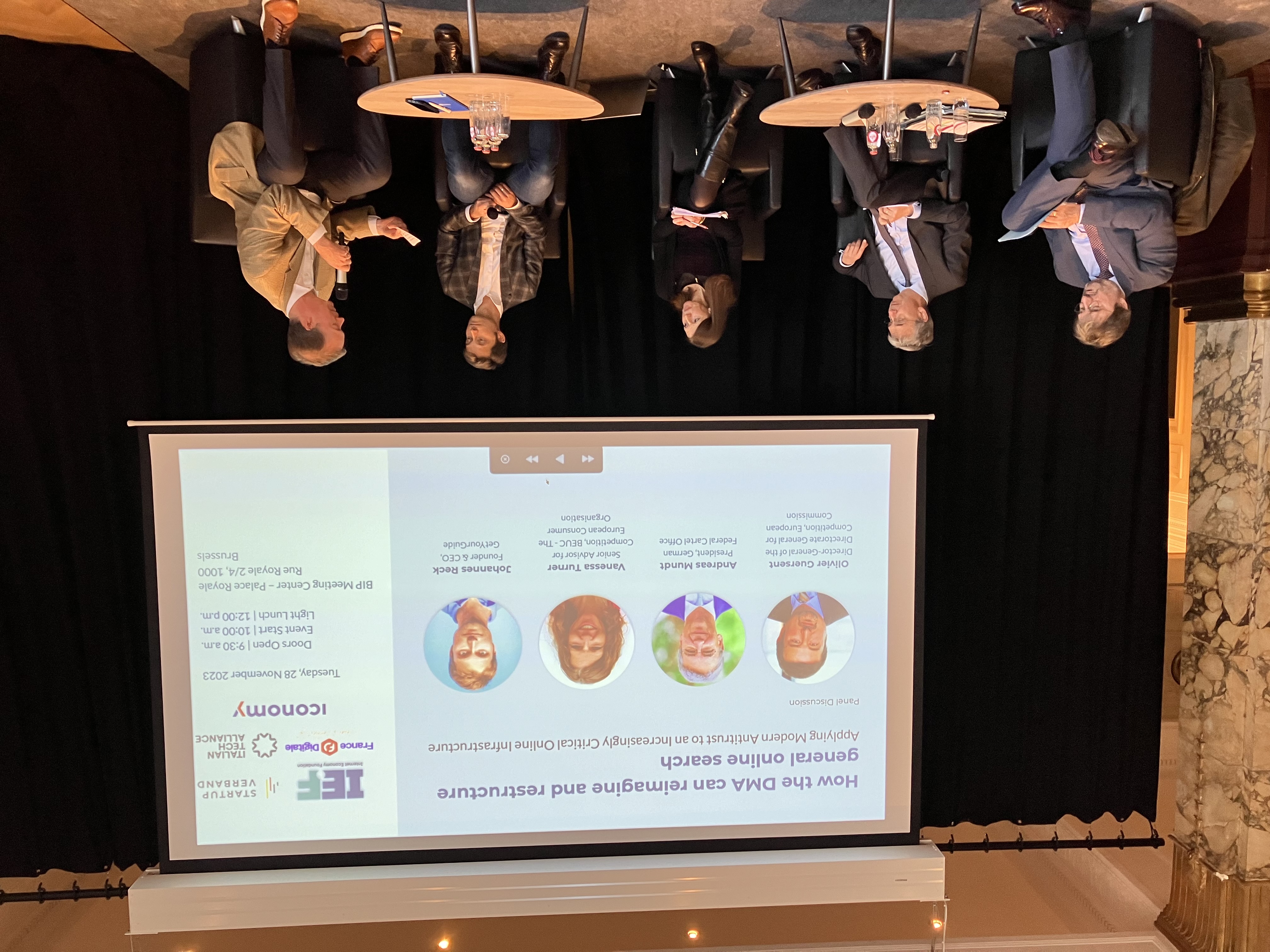The Internet Economy Foundation, together with our partners at France Digitale, Bundesverband Deutsche Startups, and the Italian Tech Alliance, have published a joint position paper: How can the DMA re-establish a neutral and fair general online search.
Over the past decade we have observed the critical gateway to the Internet, general online search, becoming an incontestable market with severely weakened competition. This has had a ripple effect into many other EU markets, resulting in less consumer choice and worsened experiences.
The sole designated Gatekeeper for general search, Alphabet’s Google Search, has had a market share of over 90% in the European Economic Area since 2011, with 93% of EU users using Google for general search today. The position paper demonstrates how Google has systematically entered six European tech markets via unfair practices. With only 100 days to go until the enforcement phase of the Digital Markets Act (DMA), now is the time to discuss how to ensure General Search is compliant to the new standards of fair competition.
Event
Today, the three startup associations, iconomy and the IE.F hosted a public roundtable event, featuring Oliver Guersent, the Director-General of the EU Commission’s DG Competition, Andreas Mundt, President of the German Federal Cartel Office, Vanessa Turner, Senior Adviser for Competition at BEUC and Johannes Reck, Founder and CEO of GetYourGuide.

Clark Parsons, Managing Director of the Internet Economy Foundation, opening the event
There are two systemic problems in General Search today
During the event, the speakers and attendees engaged with the two core problems identified in the position paper:
- Gatekeepers strategically use general search as a vehicle to enter and dominate new markets, and because of that, general search is far from a neutral gateway to the internet.
- Gatekeepers are actively entering new markets and have already created boxes on their general search results page for each new service or product.
Two policy recommendations for the DMA enforcement on General Search
Throughout the event, the IE.F and speakers urged DMA enforcers to follow the 2 policy recommendations outlined in the position paper:
- Focus DMA enforcement on provisions to restore general search’s purpose by making general search a neutral gateway for business and consumers to find the most relevant results and third parties on both desktop and mobile,
- To implement the DMA’s Art. 6(5) ban on self-preferencing, DMA enforcers must ensure that Gatekeepers general search services permanently remove all boxes or widgets from their general search result page on both desktop and mobile that contain results or information specialized in a certain topic and refrain from creating any equivalent groupings of specialized content in the future.

From left to right: Olivier Guersent, Andreas Mundt, Vanessa Turner, Johannes Reck, Clark Parsons
Today marks the 100 days until the start of the Digital Markets Act (DMA) enforcement phase on March 7th. There is certainly a lot to do, but as the event closed, our panel was optimistic about the effects of the DMA on creating a more level playing field for General Search for European Companies, specially for SMEs and Start-ups.
Further impressions from the event:
MLex: Google's Vertical Boxes Breach EU Gatekeeper Rules Rivals Say
MLex: EU Will Be Alert to Subtle Self-Preferencing Tactics Under DMA Guersent Says
Andreas Mundt
Agata Hidalgo